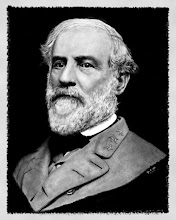3. The religious movie is a menace to true religion because it embodies acting, a violation of sincerity.
Without doubt the most precious thing any man possesses is his individuated being; that by which he is himself and not someone else; that which cannot be finally voided by the man himself nor shared with another. Each one of us, however humble our place in the social scheme, is unique in creation. Each is a new whole man possessing his own separate "I-ness" which makes him forever something apart, an individual human being. It is this quality of uniqueness which permits a man to enjoy every reward of virtue and makes him responsible for every sin. It is his selfness, which will persist forever, and which distinguishes him from every creature which has been or ever will be created.
Because man is such a being as this all moral teachers, and especially Christ and His apostles, make sincerity to be basic in the good life. The word, as the New Testament uses it, refers to the practice of holding fine pottery up to the sun to test it for purity. In the white light of the sun all foreign substances were instantly exposed. So the test of sincerity is basic in human character. The sincere man is one in whom is found nothing foreign; he is all of one piece; he has preserved his individuality unviolated.
Sincerity for each man means staying in character with himself. Christ's controversy with the Pharisees centered around their incurable habit of moral play acting. The Pharisee constantly pretended to be what he was not. He attempted to vacate his own "I-ness" and appear in that of another and better man. He assumed a false character and played it for effect. Christ said he was a hypocrite.
It is more than an etymological accident that the word "hypocrite" comes from the stage. It means actor. With that instinct for fitness which usually marks word origins, it has been used to signify one who has violated his sincerity and is playing a false part. An actor is one who assumes a character other than his own and plays it for effect. The more fully he can become possessed by another personality the better he is as an actor.
Bacon has said something to the effect that there are some professions of such nature that the more skillfully a man can work at them the worse man he is. That perfectly describes the profession of acting. Stepping out of our own character for any reason is always dangerous, and may be fatal to the soul. However innocent his intentions, a man who assumes a false character has betrayed his own soul and has deeply injured something sacred within him.
No one who has been in the presence of the Most Holy One, who has felt how high is the solemn privilege of bearing His image, will ever again consent to play a part or to trifle with that most sacred thing, his own deep sincere heart. He will thereafter be constrained to be no one but himself, to preserve reverently the sincerity of his own soul.
In order to produce a religious movie someone must, for the time, disguise his individuality and simulate that of another. His actions must be judged fraudulent, and those who watch them with approval share in the fraud. To pretend to pray, to simulate godly sorrow, to play at worship before the camera for effect---how utterly shocking to the reverent heart! How can Christians who approve this gross pretense ever understand the value of sincerity as taught by our Lord? What will be the end of a generation of Christians fed on such a diet of deception disguised as the faith of our fathers?
The plea that all this must be good because it is done for the glory of God is a gossamer-thin bit of rationalizing which should not fool anyone above the mental age of six. Such an argument parallels the evil rule of expediency which holds the end is everything, and sanctifies the means, however evil, if only the end be commendable. The wise student of history will recognize this immoral doctrine. The Spirit-led Church will have no part of it.
It is not uncommon to find around the theater human flotsam and jetsam washed up by the years, men and women who have played false parts so long that the power to be sincere has forever gone from them. They are doomed to everlasting duplicity. Every act of their lives is faked, every smile is false, every tone of their voice artificial. The curse does not come causeless. It is not by chance that the actor's profession has been notoriously dissolute. Hollywood and Broadway are two sources of corruption which may yet turn America into a Sodom and lay her glory in the dust.
The profession of acting did not originate with the Hebrews. It is not a part of the divine pattern. The Bible mentions it, but never approves it. Drama, as it has come down to us, had its rise in Greece. It was originally a part of the worship of the god Dionysus and was carried on with drunken revelry.
The Miracle Plays of medieval times have been brought forward to justify the modern religious movie. That is an unfortunate weapon to choose for the defense of the movie, for it will surely harm the man who uses it more than any argument I could think of just offhand.
The Miracle Plays had their big run in the Middle Ages. They were dramatic performances with religious themes staged for the entertainment of the populace. At their best they were misguided efforts to teach spiritual truths by dramatic representation; at their worst they were shockingly irreverent and thoroughly reprehensible. In some of them the Eternal God was portrayed as an old man dressed in white with a gilt wig! To furnish low comedy, the devil himself was introduced on the stage and allowed to cavort for the amusement of the spectators. Bible themes were used, as in the modern movie, but this did not save the whole thing from becoming so corrupt that the Roman Church had finally to prohibit its priests from having any further part in it.
Those who would appeal for precedent to the Miracle Plays have certainly overlooked some important facts. For instance, the vogue of the Miracle Play coincided exactly with the most dismally corrupt period the Church has ever known. When the Church emerged at last from its long moral night these plays lost popularity and finally passed away. And be it remembered, the instrument God used to bring the Church out of the darkness was not drama; it was the biblical one of Spirit-baptized preaching. Serious-minded men thundered the truth and the people turned to God.
Indeed, history will show that no spiritual advance, no revival, no upsurge of spiritual life has ever been associated with acting in any form. The Holy Spirit never honors pretense.
Can it be that the historic pattern is being repeated? That the appearance of the religious movie is symptomatic of the low state of spiritual health we are in today? I fear so. Only the absence of the Holy Spirit from the pulpit and lack of true discernment on the part of professing Christians can account for the spread of religious drama among so-called evangelical churches. A Spirit-filled church could not tolerate it.
(A. W. Tozer)
The Sufficiency of Scripture Conference
15 years ago













+copy.jpg)




No comments:
Post a Comment